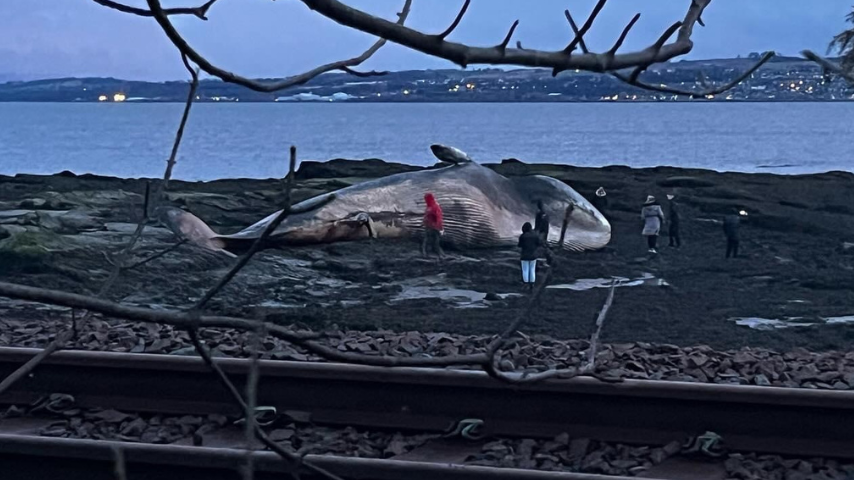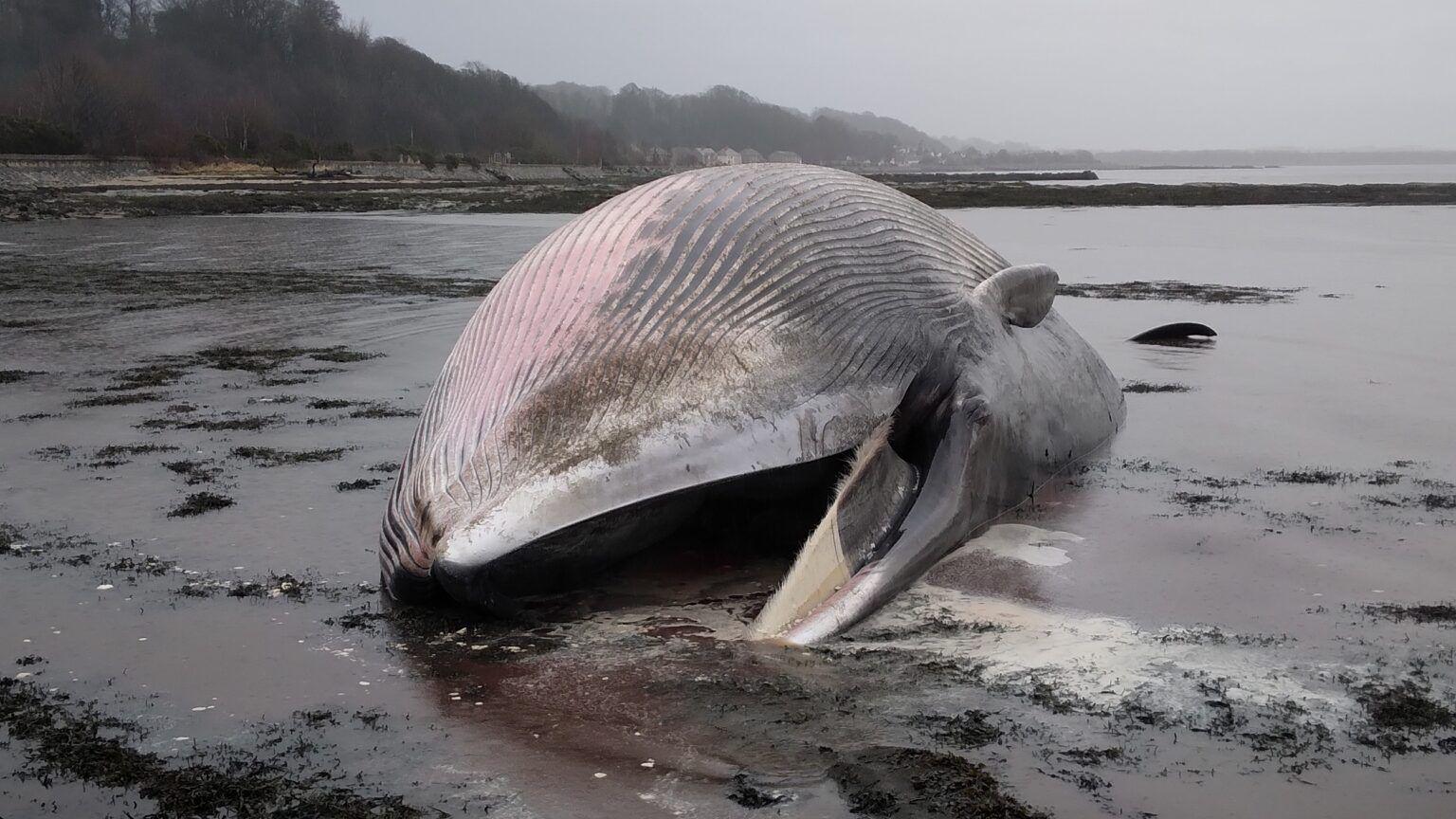Public cross 'dangerous' rail line to see dead whale

The carcass of the fin whale washed up on the beach at Culross last month
- Published
Police have issued a warning after receiving reports of people crossing a live railway line in order to see a dead whale in Fife.
The 17m (56ft) fin whale washed up at Culross beach last month and was left to decompose naturally.
People vying to see the carcass have visited the site, where there is over a mile of train tracks running along the coast.
Police Scotland said walking along the line could be "extremely dangerous" and urged people to use designated crossings.
Allow X content?
This article contains content provided by X. We ask for your permission before anything is loaded, as they may be using cookies and other technologies. You may want to read X’s cookie policy, external and privacy policy, external before accepting. To view this content choose ‘accept and continue’.
A spokesperson for Network Rail said the the incidents showed a "blatant disregard" for the safety of services.
They added: “Trespassing on the railway is illegal, incredibly dangerous, and can cause life-changing or even fatal injuries.
“We work closely with the British Transport Police, and other partners to raise awareness of the dangers of trespassing and we urge the public to keep off the tracks.”
Wildlife charity Fife Coast and Countryside Trust previously advised the public to stay away from the scene.
The organisation's head of operations, Robbie Blyth, said the beach was "relatively inaccessible".

Fin whales are the world's second-largest species of the mammal after the blue whale.
The whale is likely to have been washed up as a result of the recent storms that lashed the country.
Fin whales are the second-largest type of whale after the blue whale.
The species is known for having a distinct ridge along its back behind the dorsal fin, which gives it the nickname "razorback.”